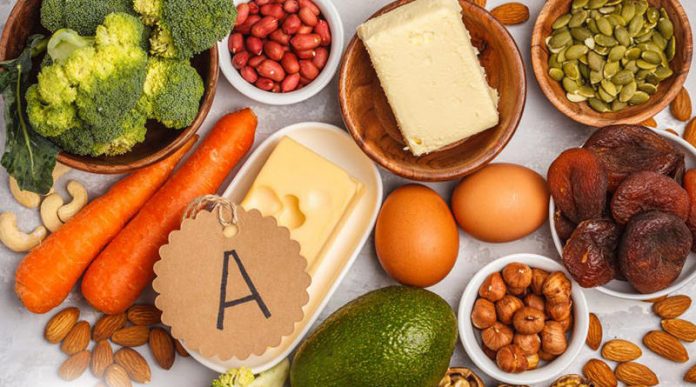Were you told by your parents to eat your carrots so that you can see in the dark? Well, you’d be happy to know that the folks were pretty much on the button. We know that our bodies need a complex array of vitamins and minerals to function properly, to ward off illness, and to give us the zest and vitality that we all desire. However, our modern lives are just so full, that it’s all too easy for us to fall prey to low levels of essential nutrients when we don’t pay enough attention to our diets. We’re going to dive into some of these critical components over the next few weeks, starting our journey with vitamin A.
What is Vitamin A?
Vitamin A is actually available in two forms: preformed vitamin A, also called retinol, and provitamin A which is created by the body from beta-carotene (as well as alpha-carotene and beta-cryptoxanthin.) Both these forms of vitamin A are fat-soluble, which means that they dissolve in fat and can be stored by the body until needed. Most of the vitamin A is stored in the liver and delivered to the various areas of our bodies as needed.
What are the Benefits of Vitamin A in the Body?
Along with its fellow vitamins, vitamin A doesn’t have just one single function. Rather, it is involved in vision, a healthy immune system, skin health and reproduction.
Vitamin A also:
- Fights inflammation
- Maintains cornea and overall eye health
- Reduces the probability of miscarriage and birth defects
- Acts as a powerful antioxidant
- Prevents acne
- Improves production of collagen
- Forms strong teeth and bones in children
Which Foods are High in Vitamin A?
Understanding the benefits, we want to ensure that we include a sufficient amount of this key vitamin in our diets – both for ourselves and our children. Where do we start?
Liver and oily fish offer the highest levels of vitamin A, followed closely by milk and eggs. Happily for the vegans among us, most provitamin A is derived from leafy greens and colourful veggies such as:
- Tomatoes
- Carrots
- Broccoli
- Squash
- Sweet Potato
- Spinach and Kale
- Pumpkin
- Mangos
- Apricots
Should I Take Vitamin A Supplements?
Vitamin A deficiency is rare in developed countries, but sadly more frequent in developing nations where the selection of basic foods high in beta-carotene available to the poor remains limited.
Signs of Vitamin A Deficiency
- Night blindness
- Low iron and/or anaemia
- Dry skin or eczema
- Slow healing
- Dry eyes
- Trouble conceiving or infertility
- Slow or stunted growth
- Persistent respiratory tract infections
There may be times, where the nutritional demands of your body are high. For instance, pregnant and breastfeeding women need a higher intake of nutrients during this taxing time; infants and young children need these essential building blocks too. Diarrhoea can diminish vitamin A levels in young children, and low levels can cause diarrhoea! Of course, if we are convalescing then we need to keep an eye on our vitamin levels, knowing that they assist with so many of our essential bodily functions.
If you suspect that you may be lacking in vitamin A then we encourage you to chat with your doctor where a simple test can be performed to establish if this is so. Along with a healthy and balanced diet, a regular supplement is a simple fix for your deficiency.















